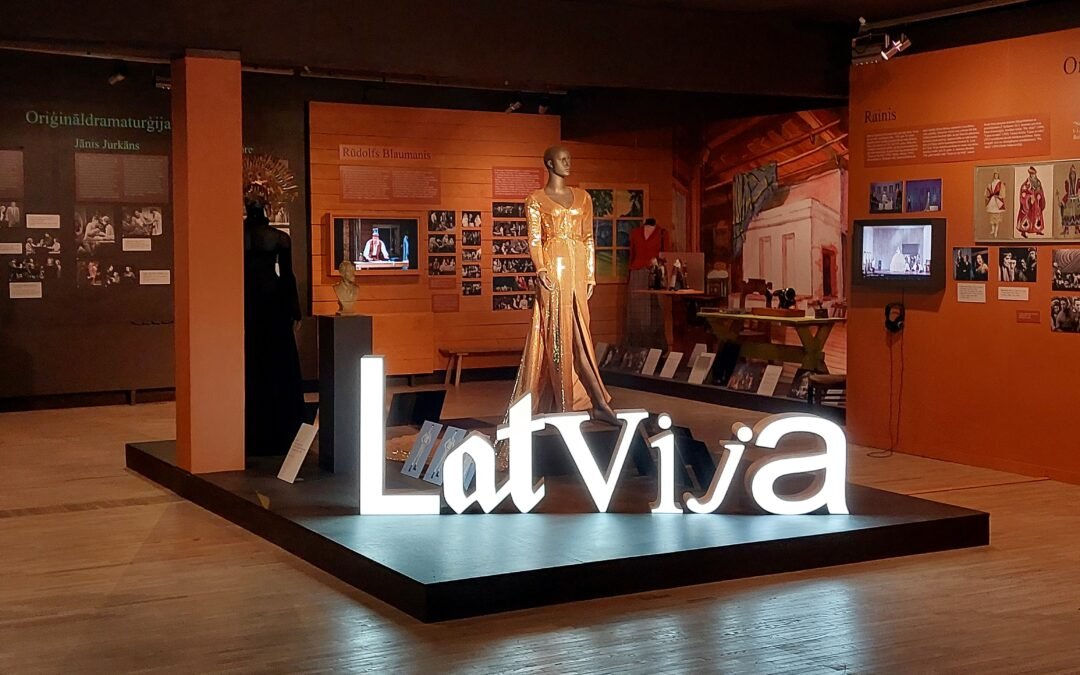Making culture accessible
 From the sunny island of Cyprus to snowy Latvia, five participants began their journey towards the Erasmus+ training program of audio description and subtitles. Even though we undoubtedly live in modern society, there is still a big gap between people living with and without disabilities, as access to culture is mainly depending on having clear vision and hearing well. The lack of solutions to access and participate in both social and cultural life is a problem in Europe today. Awareness needs to be raised as we can’t continue excluding people due to disabilities.
From the sunny island of Cyprus to snowy Latvia, five participants began their journey towards the Erasmus+ training program of audio description and subtitles. Even though we undoubtedly live in modern society, there is still a big gap between people living with and without disabilities, as access to culture is mainly depending on having clear vision and hearing well. The lack of solutions to access and participate in both social and cultural life is a problem in Europe today. Awareness needs to be raised as we can’t continue excluding people due to disabilities.
Trainers and trainees
The training course began on a crisp Monday morning in the Dirty Deal Teatro Theater, with over 30 eager participants wanting to be part of a more inclusive society. Classes were held by Ugo, a charismatic university professor with years of experience working with deaf and blind people, and Martha – the subtitle expert. With calm and thorough descriptions, Martha led the class through subtitle software’s that could be considered a bit tricky, but the class had nothing to fear. With her clear explanations and step-by-step guide, everyone managed to get the hang of subtitling real quick.
Touring Riga
After being introduced to the Dirty Deal Teatro Theater and having our classes taking place there, we were all intrigued by the beautiful interior of the place. Luckily for us, a guided tour of the museum was organized for us one afternoon. One of the museum’s employees led us through the history of Riga’s theatre, presented by incredible costumes and set designs. We were led through the three-story museum building filled with decorations and art, giving us foreigners a taste of the theatre culture in Latvia. Besides showing us the interior, we were also introduced to the snowy outdoors of the city. From the bright pink Holy Trinity Church to the best pizza in town (it’s called Street Pizza, please visit if you ever find yourself in Riga), to the farmers market, concluding the route with a balsam tasting. The outdoor tour gave us a great foundation for trying to pass as locals in just one week.
 Participants input
Participants input
I sat down with DOREA’s volunteers Sophie and Victoria, to talk about their experience of the training course. They were both satisfied with the content of the classes, applying that they learned a lot of new useful things.
“The trainers were passionate about the topic and managed to keep us engaged and stir our curiosity and motivation to learn more” Victoria told me.
While Victoria had previous experience of the topic from her studies and research, Sophie started on a blank page, going into the course without previous knowledge. But Sophie didn’t experience that as an obstacle, as she explained to me that all you needed to attend this training was the willingness to learn and a passion for the topic.
“I learned to use software that could help me produce subtitles and that there are so many creative ways of opening up culture and particularly films to people with different disabilities” Sophie continued.
“I can’t imagine posting on social media, writing an article, or creating a website without having in mind everything that I learned in the workshops” Victoria enthusiastically explained, making her point clear that she is very much aware of the lack of access in our society.
The training course is a part of the Erasmus+ KA2 project “Audio description and subtitles against exclusion”. The upcoming training will be held in May in Romania, Bucharest, focusing on creating a more inclusive environment in live theatre performances.
Author: Maja Levinsson

